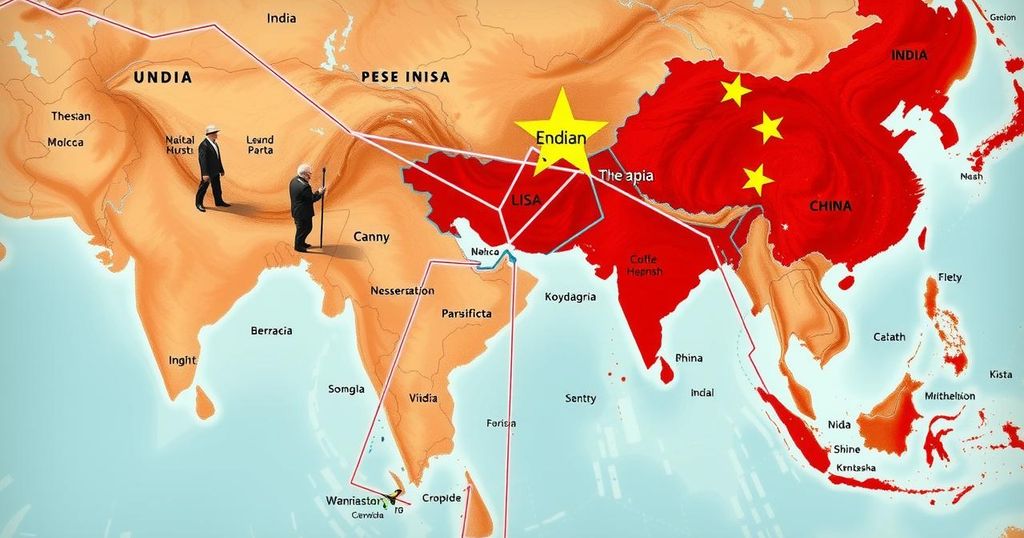Politics
ASIA, BILATERAL RELATIONS, DICK CHENEY, ECONOMIC COOPERATION, GEOPOLITICS, GREEN ENERGY, INDIA, INTERNATIONAL RELATIONS, JOHN HOWARD, MAN, MYANMAR, QUAD, QUADRILATERAL SECURITY DIALOGUE, REPUBLIC OF INDIA, SHIN, SHINZO ABE, SOUTH CHINA SEA DISPUTE, SRI LANKA, UNITED STATES, US
Clara Montgomery
India’s Strategic Response to China’s Influence in South Asia
India faces increasing challenges from China’s growing influence in South Asia, particularly in Bangladesh, Sri Lanka, and the Maldives. As geopolitical tensions rise, India must adopt a cautious yet proactive approach to safeguard its interests while maintaining diplomatic engagements with its neighbors. The establishment of strategic alliances like the QUAD is a pivotal part of India’s efforts to counter China’s assertiveness in the Indian Ocean region.
As China intensifies its strategic endeavors in South Asia, nations such as Bangladesh, Sri Lanka, and the Maldives have emerged as critical arenas in the complex geopolitical landscape. The substantial influx of Chinese investments into these neighboring countries poses significant implications for India, prompting the need for a vigilant and calculated response to protect its regional interests. India is tasked with ensuring that it bolsters its relationships with these countries while simultaneously countering China’s influence in the Indian Ocean region.
At present, India is focused on its strategic interests in Bangladesh, particularly amid the increasing instability of the military regime in Myanmar, which could disrupt regional dynamics. Additionally, India’s long-standing challenges with Pakistan further complicate its geopolitical landscape. The evolving political situation in Bangladesh, under the interim government led by Professor Muhammad Yunus, introduces an element of unpredictability, allowing external forces to potentially infringe upon India’s influence in the area.
Indian authorities regard this encroachment as a significant concern, prompting the Republic of India to seek alliances with like-minded nations. To counteract China’s strategic maneuverings, India continues to assert its role as a principal actor and security guarantor within the Indian Ocean region. A key element of India’s strategy has been its engagement with the Quadrilateral Security Dialogue (QUAD), an alliance that includes Australia, Japan, and the United States, which is often perceived as a counterbalance to China’s assertiveness in the region.
The article discusses the growing influence of China in South Asia, particularly through investments in countries neighboring India, such as Bangladesh, Sri Lanka, and the Maldives. This strategic encroachment poses significant challenges for India, prompting a need for a measured response that includes establishing partnerships and taking proactive measures to maintain its relevance and security in the region. Furthermore, the dynamics of this geopolitical ballet are aggravated by the political instability in Bangladesh and the ongoing challenges posed by Pakistan.
In summary, as China’s footprint expands in South Asia, India must navigate the delicate balance of protecting its regional interests while fostering cooperative relationships with its neighbors. The evolving political climate in nations like Bangladesh complicates India’s position, making diplomatic engagement and strategic partnerships crucial. By bolstering alliances such as the QUAD, India strives to reinforce its role as a dominant security entity in the Indian Ocean region.
Original Source: www.india.com








Post Comment